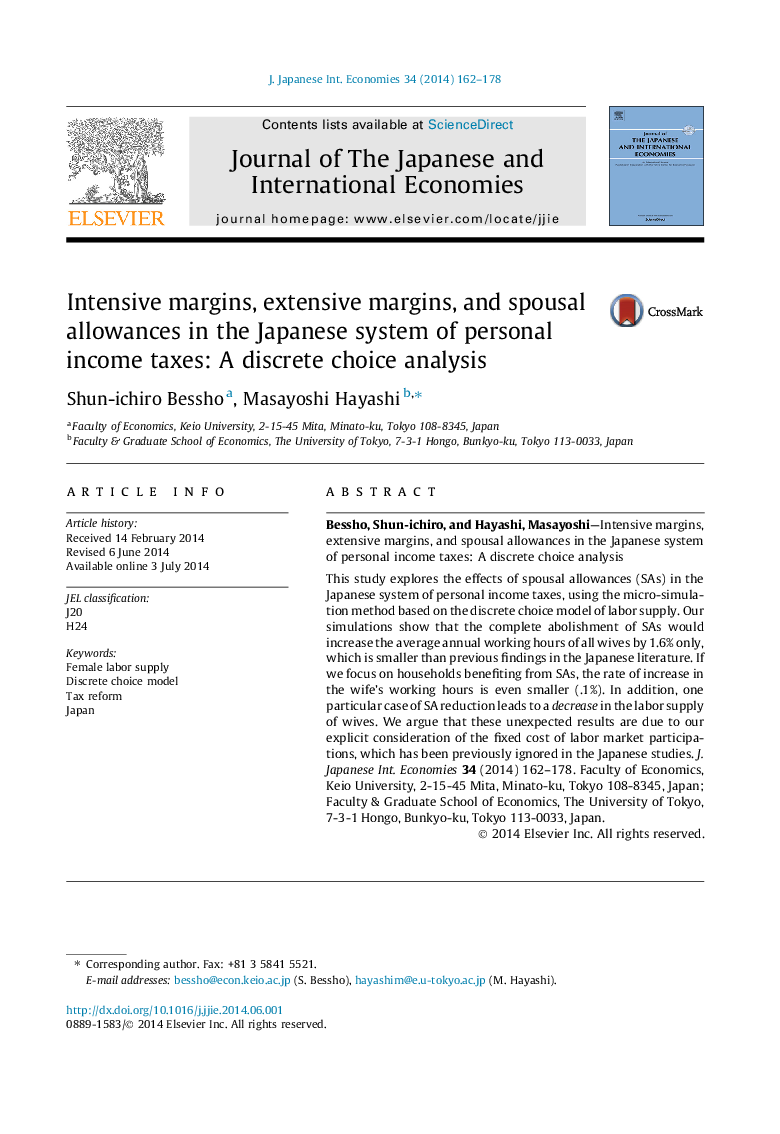| Article ID | Journal | Published Year | Pages | File Type |
|---|---|---|---|---|
| 964489 | Journal of the Japanese and International Economies | 2014 | 17 Pages |
Abstract
This study explores the effects of spousal allowances (SAs) in the Japanese system of personal income taxes, using the micro-simulation method based on the discrete choice model of labor supply. Our simulations show that the complete abolishment of SAs would increase the average annual working hours of all wives by 1.6% only, which is smaller than previous findings in the Japanese literature. If we focus on households benefiting from SAs, the rate of increase in the wife's working hours is even smaller (.1%). In addition, one particular case of SA reduction leads to a decrease in the labor supply of wives. We argue that these unexpected results are due to our explicit consideration of the fixed cost of labor market participations, which has been previously ignored in the Japanese studies.
Related Topics
Social Sciences and Humanities
Economics, Econometrics and Finance
Economics and Econometrics
Authors
Shun-ichiro Bessho, Masayoshi Hayashi,
